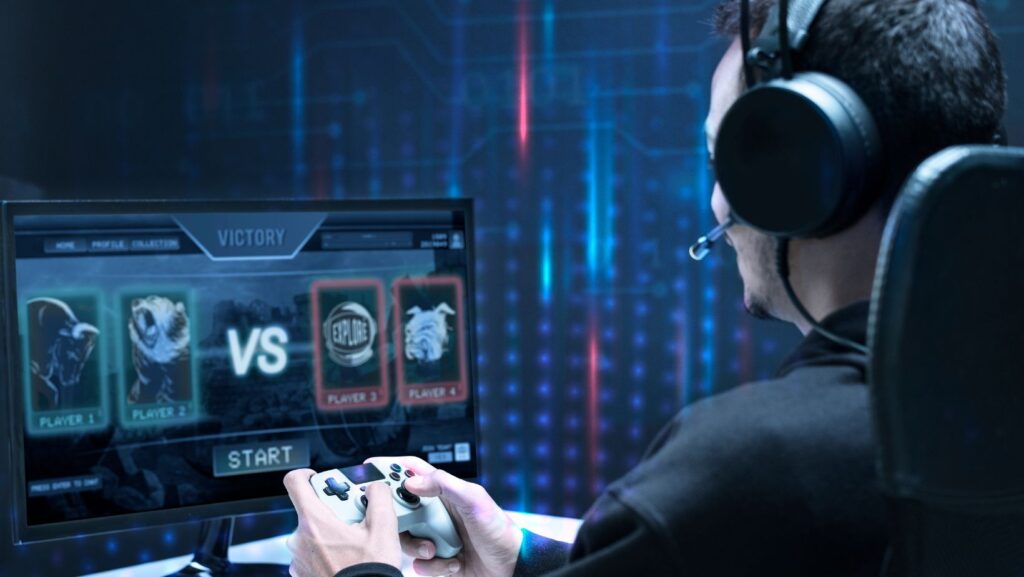
Stepping into ranked games can feel like joining a sprint mid-race: unfamiliar maps, new mechanics, and teammates who already speak a “language” you’re still learning. If you want a calmer, more structured way to improve, working with experienced players is a practical on-ramp. Platforms like the Boostmatch team use a coaching-style approach to boosting that keeps you on your own account, focuses on skill growth, and turns guesswork into clear next steps.
What Boosting Should Mean in 2025
The old shortcut (and why it backfires)
Traditional boosting usually means someone else logs into your account to raise your rank. It looks good for a week, but you land in tougher lobbies without the fundamentals to survive. The result is frustration, report-worthy games, and a rank that doesn’t reflect what you can consistently do.
The modern model: you play, you learn
Coaching-style boosting flips that script. You queue on your account, make the decisions, and get live guidance from someone who knows the mode, meta, and maps. Because the improvement is yours, your rank becomes a reflection of repeatable habits—safer routes, better timing, and cleaner team play.
Why This Especially Helps New and Returning Players
Less chaos, more patterns
Beginners often feel overwhelmed not by difficulty but by uncertainty. A mentor translates the noise: which packs are dangerous, when to rotate, how to spend utility, why an objective matters now. Once patterns are visible, matches feel slower (in a good way), and you act with intent instead of reacting late.
Confidence through small wins
Real progress compounds through tiny, do-able changes—holding an angle one second longer, saving a cooldown for a predictable spike, placing vision before contesting. The right prompts turn these into habits, and habits stick even when the lobby is rough.
How a Guided Session Works
A typical session is hands-on and simple to follow:
- Define one concrete goal. Examples: “reduce unnecessary deaths in early fights,” “hit two objective timings on schedule,” or “plan defensive cooldowns for each boss phase.”
- Queue with structure. You play; your mentor offers quiet prompts in key moments rather than overwhelming narration.
- Pause and review. Between rounds or pulls, you note patterns: what created pressure and what relieved it.
- Apply a micro-plan. Two or three adjustments are carried into the next game immediately.
- Capture takeaways. You leave with a short checklist that fits tomorrow’s matches.
This loop—play, review, adjust—replaces vague advice with actions you can test the same day.
Concrete Examples Across Game Types
Tactical shooters. Many newcomers rely on raw aim while undervaluing timing and space. A mentor might help you pair utility with entries, set crossfires that protect flanks, and choose post-plant positions that trade safely. The effect is fewer chaotic duels and more controlled fights.
MOBAs and team arenas. Rookie macro mistakes—chasing kills over objectives, contesting without vision, splitting at the wrong time—stall climbs. Guided sessions highlight “why now” decisions: when to trade objectives, when to reset, and how to convert a small lead into a map squeeze.
MMO dungeons and raids. In group PvE, role clarity wins. Tanks learn threat setups and pathing that de-risk big pulls; healers practice triage rules and cooldown timelines; DPS plan interrupts and priority targets. With a shared route and job list, wipes drop and timers calm down.
Collections and progression loops. Whether you’re farming artifacts, cosmetics, or currencies, efficient routes beat endless hours. Mentors help stack objectives, avoid overpulling, and set checkpoints that make progress visible and less tiring.

Skills You Actually Keep
Situational awareness
You learn to spot the moments that create or remove danger—enemy spikes, funnel chokes, spawn timings, and routes that compress your team by accident. Awareness lowers panic and makes your next choice obvious.
Timing and tempo
Good play feels like rhythm: commit when your comp spikes, stall when resources are down, and layer tools in order rather than all at once. Timing mistakes don’t vanish overnight, but a few explicit cues turn chaos into cadence.
Communication that helps (not floods)
Productive comms are short and specific: “smoke in five—swing with me,” “save stun for healer,” “lust on second phase.” You’ll practice the handful of callouts that consistently change fights and skip the noise that doesn’t.
Resource discipline
From ammo and mana to ultimates and trinkets, the principle is the same: spend for a purpose. Coaching focuses your usage around events (boss casts, spike windows, objective flips), so your tools decide the fight instead of decorating it.
Safety, Fair Play, and Transparency
Learning-first boosting avoids credential sharing and keeps your progression within platform rules. You play on your account, own the improvements, and measure results in public games. Session types, on-ramps, and supported titles are outlined on https://boostmatch.gg/ so you can pick a format that matches your schedule and goals without guessing.
Making Goals Measurable (So You Know It’s Working)
Vague intentions like “get better at positioning” are hard to track. Clear checkpoints make progress obvious and motivating. For instance, plan to place early vision before minute five in three consecutive matches; commit to one safe rotation path on defense for two maps; or map defensive cooldowns to three predictable boss casts. If you hit the checkpoint, keep it. If not, adjust the plan and try again tomorrow.
Who Benefits Most—and When to Consider It
- New players who want a clean on-ramp to ranked without developing bad habits.
- Returning players who need a fast refresher after patches or a long break.
- Role switchers (e.g., flexing to support, tank, or a controller role) who need job-specific templates.
- Friends and duos who want shared structure so teamwork improves naturally.
Notice this isn’t about chasing a label like “pro.” It’s about building enough readiness that ranked feels fair—and even fun—because you understand how to create good situations on purpose.
A Short Checklist You Can Use Tonight
Set one session goal you can verify within an hour; share your role, map pool, or dungeon list up front; keep prompts short (“hold utility for entry,” “call kick order,” “reset if two deaths before objective”); and end the night with two bullet-point adjustments for tomorrow. Consistency beats intensity here; three focused sessions will outperform one marathon of unstructured games.
A Smoother Path Forward
Boosting doesn’t have to be a shortcut that leaves you lost. Treated as guided learning, it becomes a reliable way to build the habits that unlock higher tiers—and to enjoy matches along the way. If that sounds like the kind of progress you want, schedule a learning-first session with a group that treats growth as the goal; the Boostmatch team and similar coaching-style communities are built around that idea, and they’ll meet you exactly where you are.











